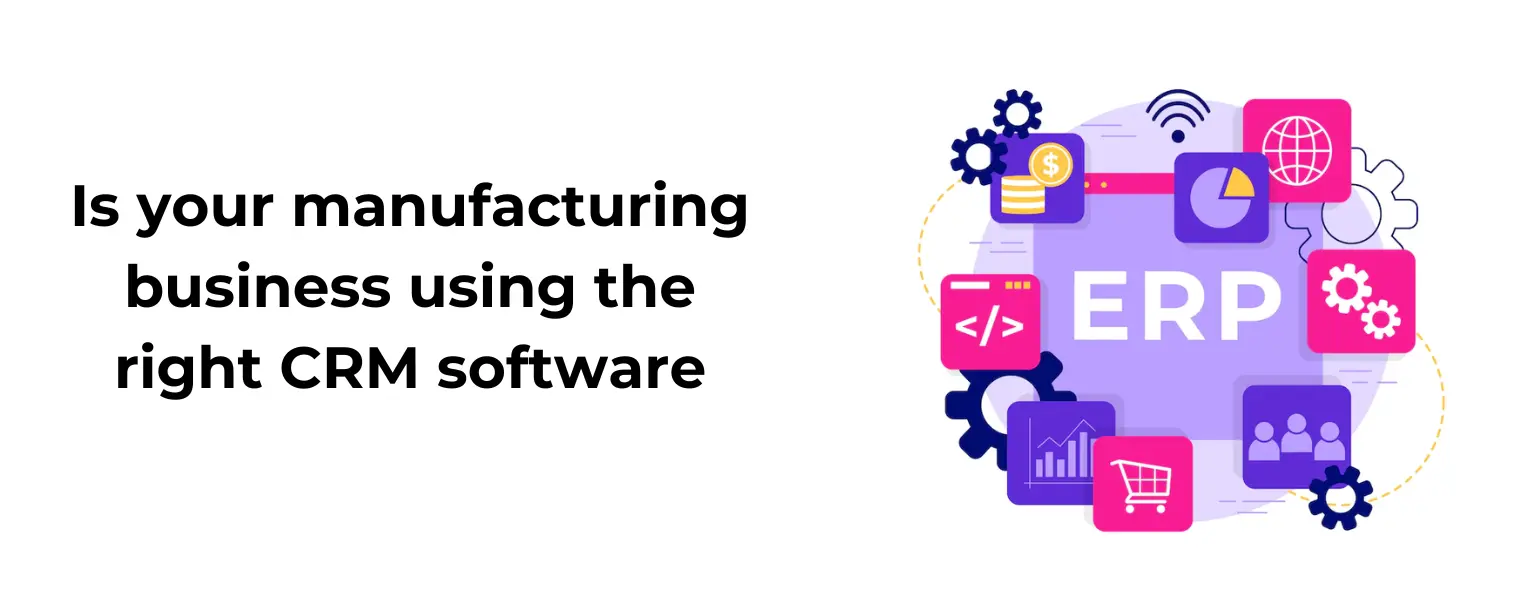
A CRM can be used to centrally track your prospects and customers. Being able to see your sales funnel more clearly makes it easier to manage your operations and follow-ups. The problem is that manufacturing CRMs frequently cause delays and don't always work as planned. Some could fail to sync with QuickBooks, omitting crucial information about sales transactions. Others provide an all-encompassing solution despite the fact that your manufacturing workflows and procedures are distinct.
So, if you're not sure if your current CRM is the best choice for you, you're not alone. Businesses are actively switching to other platforms in 40% of cases because they are so dissatisfied with current CRM. Most people transfer after they realise their original CRM lacked features crucial to their company's operations and sales strategy.
To determine the extent to which a CRM can help the business achieve its goals, it is critical to first determine the firm's needs. Make a list of the issues your CRM should address, and then specify the essential functions you want it to have.
CRM will have a huge impact on any organisation that implements it. For the change to be successful, all members of the organisation must be on board. Participation from top management will almost certainly increase the legitimacy of the systems, making it easier for the rest of the workforce to comply.
You must choose between a cloud CRM and an on-premise CRM based on your business needs and available resources. Both have advantages and disadvantages. Many people are hesitant to move their data to the cloud due to security concerns; as a result, on-premise deployment is the standard option. Cloud versions of CRM software are available from all major CRM vendors.
Because you will be investing a significant amount of time, money, and human resources in purchasing a CRM, you deserve the best solution available that will provide you with the desired return on investment. There are numerous options on the market, which can make selecting one difficult and unsettling.
Once the top options have been narrowed down, contact the suppliers and request a presentation from their business analysts that demonstrates the features and functionality of their solution. Inquire about training and support services to ensure that your employees have the skills needed to operate the CRM system effectively.
When your company is unique, why settle for an off-the-shelf sales CRM that doesn't function the way you need it to? You go above and beyond to meet your customers' needs, so your CRM should do the same for you. DoFort's Manufacturing ERP comes with inbuilt CRM. Each manufacturer has unique sales management or reporting tools that are critical to the operation. Our manufacturing ERP is completely adaptable to meet your manufacturing sales workflows, whether you require monthly revenue reporting or inventory tracking. Contact our sales person to know more or to schedule a free demo.
Welcome to DoFort !